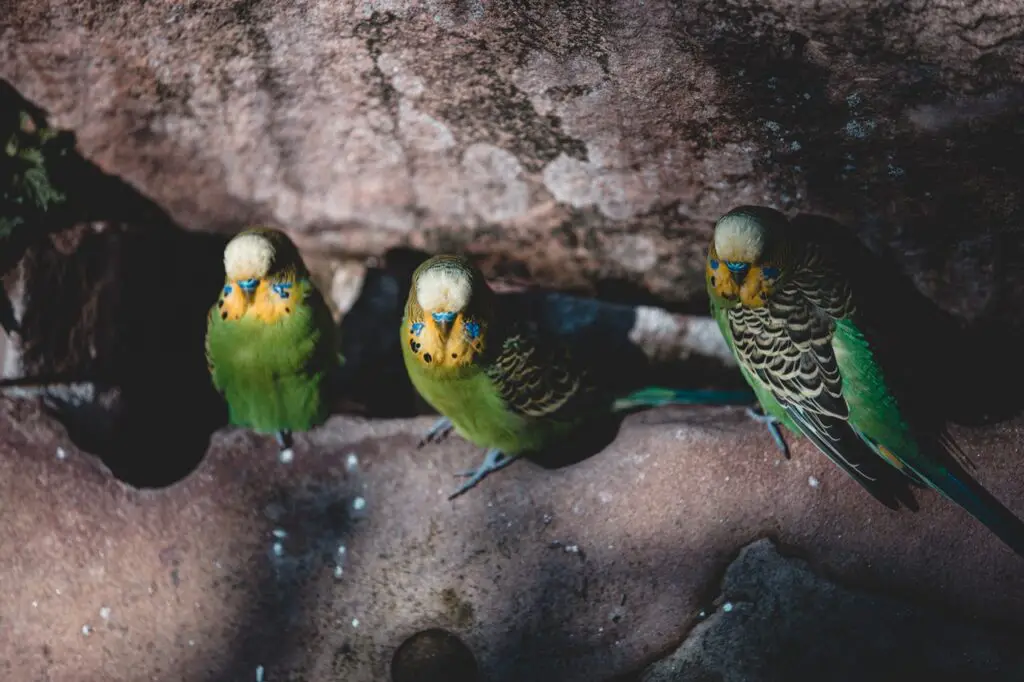Budgies, also known as parakeets, are diurnal creatures active during the day, requiring a peaceful and restful environment to sleep at night. However, they often experience sleep disturbances, nighttime noise, and fights during their resting hours. These disturbances can be attributed to various factors such as stress, fear, overcrowding, artificial light, and external disturbances.
Budgies are not nocturnal. While they are most active during the day, budgies can also be active at night. If a budgie is in a quiet environment with little stimulation, it may sleep more at night. However, if a budgie is in a stimulating environment with plenty of things to do, it may be more active at night.
In this article, we will explore the causes of sleep issues in budgies and the effects of overcrowding on their behavior. Additionally, we will discuss the importance of creating a suitable sleep environment for budgies, including using cage covers and reducing external stimuli.
By understanding the root causes of these disturbances and implementing appropriate measures, budgie owners can ensure that their feathered friends enjoy a peaceful night’s sleep, improving overall well-being and behavior.
Key Takeaways
- Budgies should be quiet at night and settle down to sleep and rest.
- Placing a cover over a bird cage can help budgies sleep better at night.
- Nighttime noise and activity in budgies indicate stress, fear, night fright, overcrowding, too much artificial light, or other sleep disturbances.
- Budgies may fight at night due to night fright, fear, overcrowding, too much light, or disturbances in the home.
What Causes Sleep Issues?
Sleep issues in budgies can be caused by various factors such as stress, fear, overcrowding, excessive artificial light, or disturbances in their environment.
The effects of stress on budgies can lead to sleep disturbances, as they may become restless and anxious.
Fear and anxiety can also disrupt their sleep patterns, causing them to be more alert and vigilant at night.
Overcrowding in their living space can lead to fights over perching spots, further disrupting their sleep.
Additionally, excessive artificial light in the room can make budgies more prone to fighting at night and interfere with their natural sleep cycle.
Disturbances in the home, such as flashing lights or loud sounds, can startle budgies and cause them to be more restless at night.
Creating a calm and quiet environment for budgies can help alleviate sleep issues and promote better rest.

Effects of Overcrowding
Overcrowding can lead to increased aggression and territorial disputes among budgies, potentially disrupting their rest and causing nocturnal disturbances. When budgies are overcrowded in their living space, they may experience heightened stress levels, manifesting in aggressive behaviors towards other birds. This aggression can lead to fights over perching spots, food, and other resources, particularly at night when budgies are more vulnerable to stressors.
These territorial disputes and fights can disrupt their sleep patterns and result in sleep disturbances, such as night fright and vocalization. Additionally, overcrowding can create a sense of competition and limited space, causing budgies to become more restless and active at night, further hindering their ability to rest and sleep properly. Therefore, it is essential to provide budgies with adequate space to prevent overcrowding and minimize its behavioral consequences.
| Effects of Overcrowding | Behavioral Consequences |
|---|---|
| Increased aggression | Territorial disputes |
| Rest disruption | Sleep disturbances |
| Limited space | Restlessness |
Creating a Good Sleep Environment
To ensure optimal rest and minimize potential disruptions, it is crucial to establish an environment conducive to proper sleep for budgies. Reducing stress and providing a quiet space is essential to creating a good sleep environment for these birds.
Budgies are highly sensitive to their surroundings, and any disturbances can lead to sleep disturbances and restlessness. To minimize stress, it is important to keep the budgie’s cage in a quiet area of the house, away from loud noises or constant activity.
Covering the cage with a cloth or a specially designed cover can create a dark and quiet environment, promoting better sleep. Eliminating artificial light sources and maintaining a consistent sleep schedule can also provide budgies with a more peaceful sleep environment.

Frequently Asked Questions
Conclusion
In conclusion, budgies can experience sleep disturbances due to various factors such as stress, fear, overcrowding, and artificial light. Nighttime noise and activity can indicate these sleep issues, and covering their cage can help create a dark and quiet environment for better sleep.
Budgies limit their activity at night to avoid predators and may issue warning calls or fight if they feel threatened. External factors like pet cats or loud noises can increase stress levels and lead to fights.
Eliminating stressors and excessive light can help budgies sleep better at night.
